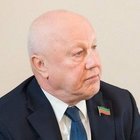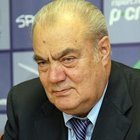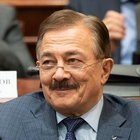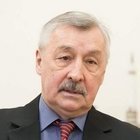‘Human capital is the most valuable thing we have’: politicians and public activists on TASSR’s 100th anniversary
The Decree on Formation of the TASSR was issued in the Country of Councils 100 years ago, on 27 May 1920. A new autonomous region appeared on the territory of the RSFSR, while the Tatar people made a step towards national self-determination in the big country. On the eve of the jubilee, politicians, representatives of the society and religious clerics told Realnoe Vremya about the importance of this event in Tatarstan and all country’s life.
Realnoe Vremya asked famous Tatarstan residents to evaluate the century the republic had covered and to tell us about the current agenda as well as key tasks for the future.
-
-

Marat Galeyev Tatarstan State Council deputy
-
If we simply look at what we had and what we have, the balance will be quite positive, of course. Before the 20th century Kazan remained a part of Kazan Governorate with interethnic discriminatory relations too. In fact, only the basic nationality, Russians, had access to higher education. The Tatars mainly got an education in private schools, madrasahs, hence the qualification, the underdevelopment of the Tatars. What prospects did society have then? It, undoubtedly, gave rise to a revolutionary situation.
When all this changed, new power came in — slogans were amazing, but the road was scary. There was a mortality rate due to hunger in the 1920s. People weren’t able to feed themselves. International aid, in fact, saved them from hungry deaths: 10,5 million people were fed every day in 1921-1922. But then the New Economic Plan saved the country from hunger. And the process was contradictory: on the one hand, the industrialisation, growth of qualification is a plus, but the minus is that all this was done due to the peasantry’s poverty, property confiscation.
The industrialisation for Tatarstan — mainly the development of the military and industrial complex — was linked not with the quality of life but the development of military sectors. It was necessary too. But an industrial structure that was to improve the quality of life was absent. And it turns out even now that we have mainly a military economy, which isn’t always good. Such an aim of the economy depends on orders of the public budget, while independent market structures operating in a competitive environment are poorly developed. For instance, the republic had a lot of garment associations half of which dealt with the Defence Ministry’s orders. This is why the light industry was weakly adapted to the real economy. Now it develops but locally. Nevertheless, research centres and enterprises of the republic gained big importance after the war to improve the country’s defence, without doubt. The growth of specialists’ qualification was plain to see.
Higher education is very developed in Tatarstan among the regions of the Russian Federation. And even not oil and related commodities but human capital is the most valuable thing we have. Its quality compared to other regions is one of the best options in the country, hence our competitiveness.
The most important thing today is to save this quality of human capital. The republic must be adapted to relations in the world economy so that we could fit in the world with this capital. We have the groundwork for it: it is both the federal university and certain scientific schools. One of the main tasks is to turn them to meet the needs of the world market. We look quite good among other regions because we began dealing with digitalisation earlier. To be honest, without compliments, I will say that the current president in this respect turned out more far-sighted than many, focused on digitalisation in the late 1990s when nobody yet talked about it and thought about survival only. And we already managed to give birth to something like technoparks, the same Innopolis. And the essence is that to correctly develop it now regardless of the sector — power engineering, the agro-industrial complex, mechanical engineering, petrochemistry — enterprises in the country can keep developing only on the basis of digitalisation. To become competitive, we can’t remain in self-isolation, we should fit in the world as a valuable partner, cooperate with leading transnational corporations, set course for openness, cooperation, globalisation.
-
-
-

Yevgeny Bogachyov UNICS BC President, Ex-Chairman of Tatarstan National Bank
-
I came from Ukraine in 1959, entered the aviation institute, I have been in the republic for 61 years already. I have seen a lot: both four economic crises and huge accomplishments. And today I see that compared to other territories the republic has saved a lot, of course. Agriculture provides considerable amounts of bread — during some years at the level of Krasnodar Krai. Achievements were made in oil refining, TANECO has been added in the last years. Which region has such enterprises as KAMAZ, has conserved so many defence plants?
I had a chance to chair the National Bank for 21 years. In 1993-1994, when salaries weren’t paid for 3-4 months across the country, here money was found, pensioners received money on time. The problem of dilapidated dwellings is just starting to be solved in other regions. While such a programme kicked off here in the 1990s. I participated in the resettlement of people from 36 flats. The republic is gasified. Despite the crises, bad harvests, programmes were implemented. While Russia tremblingly borrowed resources in the West, the banking system of the republic went ahead of other regions in the number of banks and loans for the population, and this let the economy grow.
Tatarstan occupies leading positions in Russia, including in terms of potential. Our President Minnikhanov has time for everything: he pays attention even to sport, he helps to look for sponsors. Our UNICS is famous in Europe, it is among the leaders in Russia. How many top sports competitions have been held in the republic? How many stadiums, palaces, arenas have been built? Even my basketball colleagues in Moscow and Petersburg don’t have such palaces as we do. Kazan is called the capital of sport. Construction in Tatarstan is at European level: interchanges, bridges, houses. I think I made a correct decision in my young days and chose Kazan.
We overcome difficulties. I think we will rise after the coronavirus. Blossom of the population is the most important thing for the republic. It is necessary to keep creating jobs, improving people’s well-being and boost the quality of life in the countryside.
-
-
-

Kamil Iskhakov Ex-Mayor of Kazan, Tatarstan president’s aide, Chairman of the Board of Founders of Bolgarian Islamic Academy
-
Tatarstan made a big step forward, we became a republic with a special status — it is a great achievement of our people living on this territory. When the Perestroika began, there were attempts to change the status of the republic, but we managed to keep it and even raise it. Time has passed and it has shown that it was done correctly: we have managed to take advantage of small opportunities but take advantage of them effectively for the population. The quality of life in Tatarstan, though not significantly, is different from other regions.
I say this because I have been in different regions, including as the Russian president’s plenipotentiary ambassador in the Far East. And I concluded that, indeed, the happiest people lived in Tatarstan. The status of the republic allowed our republic to straighten its shoulders, achieve good results, this opens us a road to the future. And for this purpose, the most important thing we should pay attention to in the near future is to the development of labour relations so that our population will have good jobs that would allow making good money accordingly their skills and keep improving life. It seems to me that special attention should be paid to the high-tech heavy aviation sector when developing the industry. We have developed chemistry, petrochemistry, refining and kept them at a good level. But developing labour relations, creating good jobs, we should carefully look at the social sphere — here we have things to improve, think about, deal with — a lot needs to be done for our people.
-
-
-

Shamil Ageyev Board Chairman of Tatarstan Chamber of Commerce and Industry
-
Tatarstan turned from an agrarian illiterate republic into a highly developed region. The republic combated illiteracy, at times an unfair sceptical attitude to Tatarstan staff, persecution for the religion, some other national issues. How many executives were repressed? The republic took the dissolution of the Soviet Union hard together with the whole country, the dissolution of ties was very painful. But Tatarstan and Kazan straightened their shoulders. Here aviation, rudiments of space developed, oil refining appeared and keeps speeding up, agriculture, KAMAZ were saved. Kazan became the third capital. Tatarstan can be proud of its potential, it isn’t used to the full yet, and people are the main wealth of the republic. There has always been tolerance to different nationalities and religions here. Let’s remind one how we lived decades ago and how we live now: lights shine not only in Kazan but also in all districts of the republic. We can be proud of our culture.
Tatarstan made an amazing step in the big united family of Russia’s peoples. This nucleus should be saved. We should save the scientific, production potential. Now it is tough to maintain connections during the crisis. But the pandemic has made us mobilise, it has shown that the country and people can get out of it being different people, save their face and not lose our connections — diasporas that are spread across the globe — and maintain them.
-
-
-

Rafael Khakimov Director of Sh. Marjani Institute of History
-
The 1920s were very important for the Tatars — they obtained autonomy, and it envisages a language and a system of education. There was a full-fledged language, and Tatars had received education, but at madrasahs, and they were different, both rural and serious. A new system, in fact, was created at the beginning of the past century, higher education became available for Tatars. Moreover, systemic science and scientific schools began to form. There weren’t such huge breakthroughs in the economy before the war, of course. But by the war, Tatarstan was a developed republic and as one of the home front centres worked for the common victory, planes, fighters were made here, a lot of soldiers and officers were supplied to the front from here. There was gradual recovery after the hungry years. Large-scale oil production was the moment of the era (there had been exploration before the war too), it was a weighty energy contribution for the whole country.
The industry, aviation developed, a whole city was erected when building KAMAZ, Almetyevsk was built due to oil. The 1990s were life-changing too, they can be compared with years of the revolution. But if the first step to statehood was made in the 1920s (Stalin was against an allied republic in Tatarstan, autonomy was the result — a campaign in 1929 unified everything), this was restored to a certain degree in the late 20th century.
The agreement gave us a lot — people understood that the future of the republic depended on them. The centre used to pump out money from here, and here money was asked for from Moscow. But the situation changed, the republic began to decide itself what they can and what they can’t, what sectors to develop, foreign policy appeared. Of course, now it is important for Tatarstan to go to a stage of high technologies, which is done. We understood as early as under Shaimiyev that we should focus on several important sectors, which would be internationally significant, without distracting to other things.
An accent on crude oil is dangerous. We began to make not only petrol but also rubber and make tyres from rubber, while tyres were placed in cars and cars were sold — it is such a simple thought that a chain of the petrochemical complex realises. And it is always profitable to sell cars and planes. But the republic understood that oil production wasn’t a priority. Education was the key issue. The groundwork prepared by Shaimiyev for its development began to bore fruit 10 years ago. And Minnikhanov himself gave it a big impetus — he built Innopolis when the country was in crisis.
Many commodities were actively exported with the development of innovation. But one thing is to produce, but another thing is how to sell when opponents are very strong. Now KAMAZ shows off decently, helicopters are sold, there is future. We should keep fighting for our place in the world market.
-
-
-

Kamil Samigullin Mufti, Chairman of Tatarstan Muslim Spiritual Directorate
-
In the last hundred years, the Tatar people almost completely lost the 1,000-year Tatar theological legacy. It turned out to be not very easy to revive it because we lost or, more precisely, forgot our writing in Arabic script. Now thousands of written old Tatar sources keep our richest spiritual culture in silence. Some representatives of the Tatar intelligentsia say that Islam imposes Tatars the Arabic language and culture. But our ancestors had been the Arabic script until 1927, that’s to say, for more than 1,000 years. The Tatar culture developed on the basis of Islam for centuries, this is why we see further prospects of the conservation of the national identity precisely in a religious revival. Tatars had one of the leading roles in the Islamic world, they were progressive people. But we, unfortunately, allowed tens of years of atheism to throw us 1,000 years back, cross all our national achievements out.
Tatarstan’s development priorities are set in different spheres. I think that spiritual and national revival must be one of them. It is wrong to consider these two components separately. Our wise ancestors already made the main choice in the fate of our people and gifted us happiness to understand the special grace of God — to join Prophet Muhammad’s God-chosen ummah. Islam brought Tatars a high religious culture, traditions of enlightenment and deep morality based on holy commandments of God. Precisely Islam gave the Tatars power and opportunities to be saved as a nation during the severest trials we had to face. And we still stand on the stronghold of the bedrock.
This is why 2020 was unanimously declared by muhtasib imams and kazis the Year of Mother Tongue in the Republic of Tatarstan. This means that activity of a muftiate and its established organisations this year is set up considering tasks to develop the Tatar-speaking environment at mosques, teaching the Tatar language, popularisation of the Tatar spiritual legacy, conservation of the national identity and education of national self-consciousness among our compatriots. Yes, the coronacrisis has made its amendments, we have had to stop or postpone some initiatives. But we managed to do something before the crisis, while some Tatar-speaking projects keep being implemented despite the situation: we have Nur Tatar school in Almetyevsk, Yardem boarding school for boys in Baltasi and Ikhsan Yelabuga, Tatar language courses at mosques, the mass media, books and so on. Moreover, we count on certain results from My People — My Pridejournalistic competition which will allow explaining to our compatriots the necessity of the conservation of the national identity. We still hope that we will anyway manage to go to regions with small settlements of the Tatar-speaking population and give them sermons and public popular lectures on this topic. We also plan to expand the geography of Tatar language courses at mosques across Tatarstan. The latest course consisted of 436 students, they all learnt to speak colloquial Tatar.
-
-
-

Ayrat Farrakhov State Duma deputy from Tatarstan
-
At federal level Tatarstan today is an absolute example and leader of development from both a perspective of the political set-up and economic achievements and quality of life of people, including meeting all people’s rights regardless of their nationality and religion. Authorities on the territory of the republic have been effective and successful at different stages for many years, they have helped to save tolerance among people with different religions. Our native Kazan where the mosque, church, synagogue, Catholic church are neighbours is an example of it, and everybody lives in friendly relationships. Precisely this together with the separate Constitution of the Republic of Tatarstan has always been the foundation for long-term investments, advanced development of the economy because investors invest where there is stability.
I am very thankful to our ancestors who saved our language, amazing culture during the Soviet times, created the foundation for the industrial power on the territory of Tatarstan, a high level of education and scientific development. Now we live during the fourth industrial revolution. The republic is a leader also because its political and national factors that were embodied in laws provide outstripping development.
As a doctor, financier, an economist I don’t want to underestimate the influence of the coronavirus infection and its consequences. It affects a lot of people around the world, this global problem won’t pass Tatarstan by and will have a colossal impact on the economy, people’s incomes and life after the coronavirus infection — I hope it will be good in the good sense of the word, it will just be different. Today there is some uncertainty, it doesn’t allow us to clearly understand when all this will end. This is why precisely today the coronavirus is a number one problem and will remain as such for long. Even though the republic is among the leaders in the Russian Federation, we should lead the life of our people to the quality of life in developed countries as much as possible — this won’t be achieved on its own but only thanks to an effective innovative economy. It will create good budget incomes, which will be a guarantee of high incomes of citizens. And therefore it is important that there be stability in the future that will allow attracting a lot of investments in the modern economy.
-
-
-

Irek Zinnurov State Duma deputy from Tatarstan
-
The republic has gone through many different eras: its tough formation during the Soviet times, the war. Neither was it easy in the 1970-1980s when all commodities went to the centre, Tatarstan constantly was a donor. But it hasn’t lost the main thing over this time — people. The republic has always been led by economists who worked and work for its good. Despite different moments in the history of the country, our people have proved their competitiveness in many spheres so that the federal centre will also respect us. And our republic has leading positions in all spheres.
The population’s quality of life is a key issue for every region of the federation. It is necessary to improve the quality of life of people. And I have to say that Tatarstan is appreciated, people want to come here. I like a saying of the minister of youth affairs of the republic: “Wherever you are born, you come in handy in Tatarstan”. People want to live here, while they go where it is better. It means that Tatarstan can provide conditions for a comfortable life, there are jobs here, people can not only work but also rest — Tatarstan has everything for it.
-
-
-

Boris Mendelevich State Duma deputy from Tatarstan
-
Tatarstan has undergone a dramatic transformation over this time. I will especially note health care. The republic has always been famous for the quality of medical education, professional staff, and we have been leaders in the country over the years. The pandemic of the new coronavirus became clear evidence of it: Tatarstan was one of the first regions to receive Russians from other countries, precisely the republic was the first in the country to introduce SMS passes. Here, in Tatarstan, the government under Mr Minnikhanov was one of the first regions to make a decision to soft the restrictive measures. Now, a couple of months later, we can certainly talk about the effectiveness of all measures taken. Moreover, it is also important to note that the health care infrastructure turned out to be ready for such loads, including it is the merit of executives, leaders of the republic who were and are real professionals of their activity who know how to plan beforehand.
Now, if we are talking about health care, it is very important to inculcate the culture of caring about citizens’ health because many districts and cities already have all the necessary infrastructure: it is built and upgraded sports venues, public spaces have had recently a new lease of life and not only.
It is very important to perform a lot of tasks together and systematically. It is a demographic shift, migration between the countryside and the city and so on. As for health care, telemedicine and digitalisation in general are very actively developing now. In this respect, Tatarstan has good groundwork and experience that need to be paid at least as much attention as it was. Precisely more innovations are going to the forefront now because infrastructure has been created, there is potential.
Besides, Tatarstan has a huge scientific potential, which has the opportunity to develop into a scientific cluster and increase the innovativeness of our entire country.
As a psychiatrist, I am concerned about the infrastructure of specialised hospitals, which are in poor condition all over the country. I would like this issue to be resolved. And I, as a deputy, will make every possible effort to do this.
-
-
-

Zilya Valeeva Chairman of the Public Chamber of Tatarstan
-
In the hall of the Museum of the History of Statehood of the Kazan Kremlin, there is a section impressive with photos. They have black circles painted over almost all the faces in the collective photos — this is a sign of the terrible time that came after the first years of the revolutionary rise, the expectation of a new life, changes, and universal justice. In the first years after the revolution, there were dramatic events: dekulakisation, socialisation of everything. Nevertheless, these were years of growing literacy, and many people got the opportunity to study.
I had the opportunity to communicate with actress Olga Alexandrovna Aroseva. Her father, a famous diplomat who was repressed in 1937, was a native of Kazan. She showed me the glasses that her father kept all his life. Olga Alexandrovna's grandmother lived in the centre of the city, in one of the basements, and she was a seamstress. The Czechoslovak Legion entered the city, the light in her room was turned on, apparently, she was working. Her window was pierced with a bayonet, but if not these glasses, the grandmother had been stabbed through the eyes, the glasses saved her. Here are some of the ordeals borne by specific people. At the same time, Molotov and Arosev studied at the Kazan real school, then they became prominent figures in the revolutionary movement, and after that Olga Alexandrovna's father became a famous diplomat. The last place he was recalled from, it seems, was the Czech Republic. Historical milestones of the republic are connected with specific people and families. I read Alexander Arosev's diaries, which his daughter never published. These people sincerely believed that they were building a new just life, but the fate of many of them lasts only until 1937, and then begins a dark period not only in their fate but in our entire history — the years of repression. Many fell victim to them, deceived, with absurd accusations.
Bitter trials befell in all periods of history, but still in any generation there were people who, in spite of everything, did not get angry, did not become bitter, remained true to their ideas, professional, state, remained loyal to their country. Thanks to the efforts of these people, history was eventually made and the state progressed.
I remember the story of Sergey Korolev, the chief designer, who was also repressed as a young scientist in Moscow before the war. Through Kolyma, he ended up in Kazan, and it was from Kazan, we can say, that he launched into space because he continued to work here on the rocket engine together with Glushko, Professor at the Kazan Aviation Institute. Our scientists and specialists worked together with such outstanding figures of the country. I think that the 100th anniversary of the Republic of Tatarstan is not only the anniversary of our republic, it is a very important 100th anniversary for the Russian Federation because later during the war Tatarstan provided serious support to the front. I hope that Kazan will become a city of labour glory, and its merits will finally be recognised. The republic kept pace with the country, and at the same time, the events that took place in Tatarstan became defining, dictating new trends, as we would say now, for the country as well. Industrial giants were laid here, and these included oil production facilities that were discovered in Tatarstan. The scale of the history of the republic is always broader, it is part of the vast history of the country.
Despite the fact that people experienced difficult trials, every stage of history has been marked by achievements, including the last 30 years of history. Although it is customary to say: “God forbid you to live in an era of change”, but such is our history that we live almost all the time in an era of change. They seem to be a tool for moving forward, over the course of 100 years, there have been so many tragedies and historical events that people have not experienced anywhere else for 1,000 years — and we always have such a life in a very concentrated form.
Today there is a task of saving people. The modern pandemic also tests us on what experience we have gained in the past and what we have most valuable, without which we can not move into the future. There have always been talented people who love their country. It seems to me that in all ages they determine the course of history. I think the main thing now is to save our health, to save our children, to overcome difficulties and diseases, and to look confidently into the future with a new immunity against any trials. We have everything for this. In recent years, we have accumulated a huge potential, both scientific and industrial. We are one of the first to identify strategies without which, as it turns out, there really cannot be a competitive environment: the development of informatisation, digital economy, and education. When they list the programmes that are being implemented in the republic, they are taken aback — 50 programmes — it is just inconceivable. But these are the numerous rails (among them it is difficult to determine one main direction) that allow us to ensure a reliable future for the republic as one of the leading regions of the Russian Federation. We must emerge from this ordeal with dignity, and there will be even more work, more knowledge will be needed — as always, we will need talents and people who love the republic and the country.
-